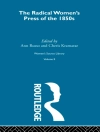During his writing career, Oscar Wilde became known for his involvement in the rising philosophy of aestheticism. The opportunity to construct aesthetic details precisely, and combine them with larger social themes, drew Wilde to write drama. He started with philosophical dialogues and tragedies, and later moved on to comedies. Wilde produced several society comedies in the early 1890s, which made him one of the most successful playwrights of late-Victorian London. With these plays, he finally found a way to critique society on its own terms.
Table of Contents:
Vera
The Duchess of Padua
Lady Windermere’s Fan
A Woman of No Importance
Salomé
Salome (English Version)
An Ideal Husband
The Importance of Being Earnest
La Sainte Courtisane
A Florentine Tragedy
For Love of the King
The Decay of Lying (A Dialogue)
The Critic as Artist (A Dialogue)
Über den Autor
Oscar Wilde (1854-1900) was an Irish writer, poet and dramatist. After writing in different forms throughout the 1880s, he became one of London’s most popular playwrights in the early 1890s. Today he is remembered for his epigrams, his novel The Picture of Dorian Gray, his plays and poetry, and the circumstances of his imprisonment and early death. Wilde is a central figure in aesthetic writing. His controversial, open lifestyle was the reason he was charged and eventually convicted for the crime of sodomy.












